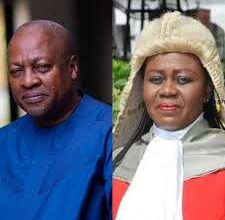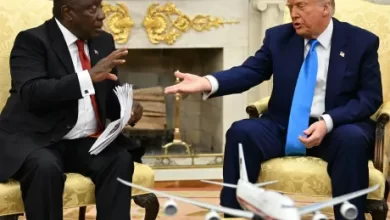
Political elections often resemble grand spectacles of propaganda. Nowhere is the aim of the propagandist more evident than in a political campaign. The primary goal of election materials is to persuade voters to cast their ballots in favor of a particular candidate or party. Campaign content is meticulously crafted to influence the electorate towards a desired outcome—essentially, to secure a candidate’s election. Consequently, elections can create a highly manipulative environment where the public, often unsuspecting, becomes increasingly susceptible to influence. Techniques such as polls, fear-mongering, propaganda, and demagoguery are employed to manipulate voter perceptions. How aware are you of the strategies used in modern political campaigns to win your vote?
Political Collectibles
Political collectibles encompass items associated with politics, political figures, and political events, valued for their historical significance, rarity, or personal interest. These items reflect the history of political movements, campaigns, and leaders. Examples include:
Campaign Memorabilia: Buttons, posters, flyers, and other items from political campaigns, especially those from historically significant elections.
Political Ephemera: Documents, pamphlets, or brochures related to political issues or events, such as speeches, legislative bills, or historical proclamations.
Autographed Items: Signed photographs, letters, or documents from politicians, statesmen, or political activists.
Historical Documents: Original copies of important treaties, declarations, or legislative acts.
Political Artifacts: Objects used by or associated with political figures, such as a desk used by a president or a pen used to sign important legislation.
Political Cartoons and Illustrations: Art that captures or comments on political events, figures, or issues.
Election Memorabilia: Items like ballots, campaign ads, or voter guides from significant elections.
Book Reviews
“The President Ghana Never Had: Manasseh Azure Awuni Unveils Shocking Revelations in His New Book”
Manasseh Azure Awuni’s “The President Ghana Never Had” offers a compelling examination of Ghanaian politics, providing an in-depth look into the complexities and controversies surrounding the nation’s political landscape.
Overview:
In this book, Manasseh Azure Awuni, a prominent Ghanaian journalist and investigative reporter, presents a critical analysis of Ghanaian political dynamics and leadership challenges. Known for his rigorous investigative journalism and outspoken views on corruption and governance, Awuni uses this book to critique political figures, policies, and systemic issues within Ghanaian politics.
Key Themes:
Political Analysis: The book explores the intricacies of Ghanaian politics, highlighting corruption, mismanagement, and leadership failures. Awuni’s extensive research and firsthand reporting make this a significant contribution to understanding Ghanaian political issues.
Revelations and Criticisms: The book promises shocking revelations, likely including new insights or exposing controversial aspects of political figures or events. Awuni’s investigative reputation adds weight to these claims, though readers should approach with a critical eye, considering potential biases or sensationalism.
Historical and Contemporary Context: Awuni provides historical context to explain how past events shape current political environments, helping readers understand political continuity and change.
Author’s Perspective: Awuni’s perspective, informed by his journalistic experience, reflects his personal views and insights. Readers should be mindful of this potential bias.
Strengths:
In-Depth Reporting: Awuni’s investigative background offers a detailed and analytical approach.
Relevance: The book addresses current and pressing issues in Ghanaian politics.
Engaging Writing: Awuni’s writing is often provocative and engaging, drawing readers into complex political discussions.
Potential Drawbacks:
Bias and Sensationalism: The book’s focus on revealing shocking information may include sensationalism. Readers should seek additional sources for a balanced view.
Complexity: The detailed analysis may be challenging for those unfamiliar with Ghanaian politics.
Conclusion:
“The President Ghana Never Had” is a significant addition to discussions on Ghanaian politics. Manasseh Azure Awuni’s expertise provides valuable insights into political issues, though readers should be aware of potential biases and approach the book as part of a broader exploration of Ghanaian political history.
“Agyapadie: Akufo-Addo, NPP, and Akyem Secret – A Book on Ghana Capture”
Manasseh Azure Awuni’s “Agyapadie: Akufo-Addo, NPP, and Akyem Secret” is a provocative and controversial examination of Ghanaian politics, focusing on President Nana Akufo-Addo, the New Patriotic Party (NPP), and the influence of the Akyem ethnic group.
Overview:
Awuni’s book delves into the political dynamics and alleged power plays within President Akufo-Addo’s administration and the NPP. It critically examines how political power and influence are exercised, particularly in relation to the Akyem ethnic group, to which Akufo-Addo belongs.
Key Themes:
Political Power and Influence: The book investigates how political power is concentrated and wielded in Ghana, focusing on the Akyem ethnic group’s influence within the NPP and the broader political system.
Corruption and Governance: Awuni’s investigative lens highlights issues of corruption and governance failures under Akufo-Addo’s leadership, presenting detailed accounts and evidence.
Ethnic and Regional Politics: The role of ethnicity and regional identity in Ghanaian politics is central, exploring the Akyem group’s impact on national politics and governance.
Critical Analysis: The book provides a critical view of the NPP’s policies and Akufo-Addo’s presidency, examining how ethnic affiliations and personal connections influence political decisions and appointments.
Strengths:
Investigative Depth: Awuni’s thorough investigative approach reflects his commitment to uncovering political truths.
Relevant Issues: The exploration of power dynamics and corruption is pertinent to understanding contemporary Ghanaian politics.
Engaging and Informative: The book offers detailed insights and critical analysis, valuable for readers interested in Ghanaian political scandals.
Potential Drawbacks:
Bias and Controversy: Readers should be aware of potential biases in Awuni’s portrayal of political figures and events.
Sensationalism: The focus on controversial topics may lead to perceptions of sensationalism. A critical approach and corroborative research are recommended.
Conclusion:
“Agyapadie: Akufo-Addo, NPP, and Akyem Secret” provides an in-depth look at Ghanaian politics, focusing on power, influence, and corruption. Manasseh Azure Awuni’s investigative approach offers valuable insights but should be considered alongside other sources for a balanced understanding of the issues discussed.
Story by: Alexander Kukah


